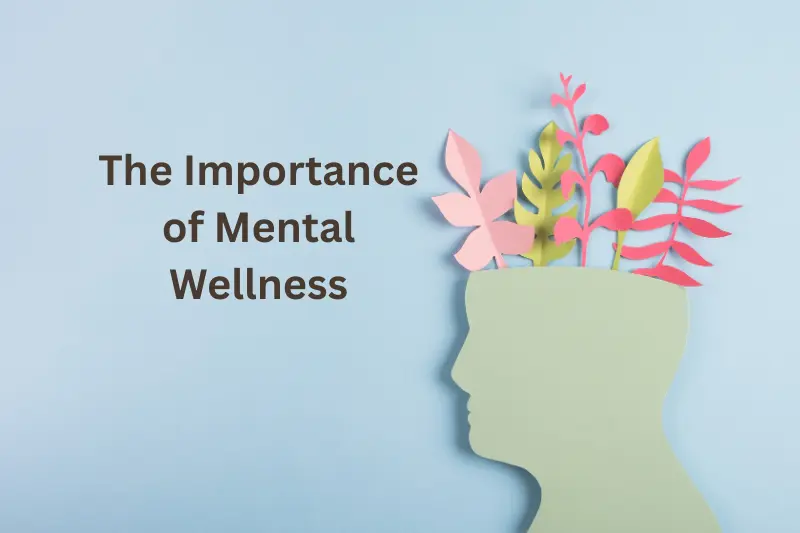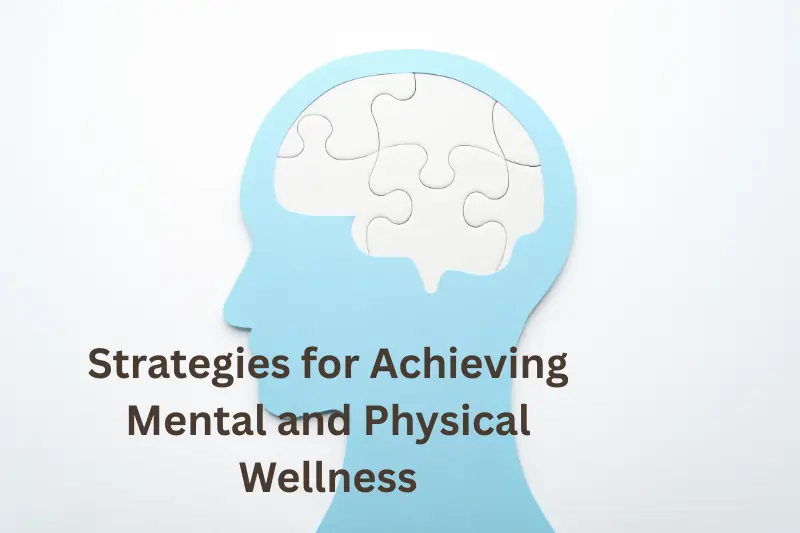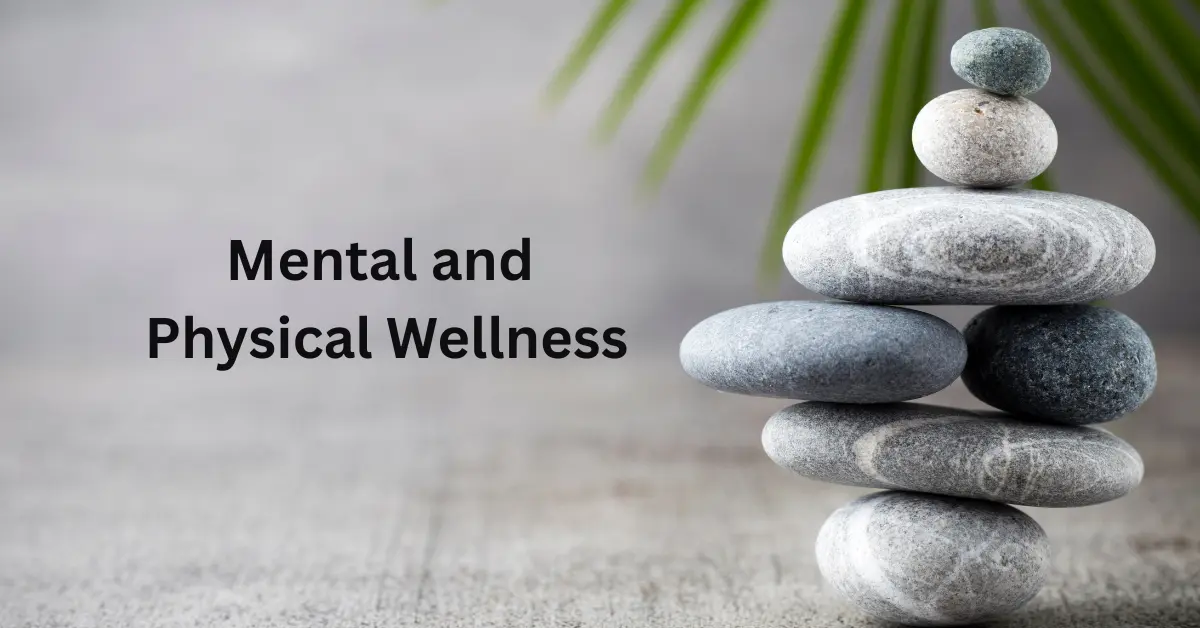In today’s fast-paced world, it can be easy to overlook our well-being, often focusing more on our daily responsibilities than taking care of our mental and physical health. However, true wellness is not just about the absence of illness; it is about nurturing both the mind and the body, creating a balanced approach to life that promotes happiness, productivity, and overall health. Achieving this balance requires conscious effort and understanding of the vital role that both mental and physical health play in our daily lives. Mental and physical wellness are interlinked—when one thrives, the other benefits as well. This is why it’s crucial to adopt practices that can simultaneously enhance our emotional state and physical fitness.
In this article, we will dive deep into the essential components of mental and physical wellness, offering actionable tips, techniques, and information to help you improve both areas of your life. Whether you’re looking for ways to reduce stress, enhance your fitness routine, or simply find a deeper sense of peace, this guide will serve as a roadmap to support you on your journey toward holistic well-being. From the latest research on mental health to effective strategies for improving physical fitness, you’ll find all the information you need to begin making meaningful changes.
The Importance of Mental Wellness

Mental wellness is not merely about feeling happy; it’s about cultivating a healthy mental state where one can handle stress, build positive relationships, and lead a fulfilling life. Mental wellness encompasses various aspects, such as emotional balance, cognitive health, and resilience. It is equally essential as physical wellness, as mental health significantly influences overall well-being.
1. Emotional Health: The Foundation of Mental Wellness
Maintaining emotional health is crucial to mental wellness. Emotions are natural and a part of life, but when we don’t know how to manage them effectively, they can lead to negative consequences such as anxiety or depression. Emotional health involves being able to understand, express, and manage your emotions in a healthy way.
2. Cognitive Function: Sharpening Your Mind
Cognitive health refers to the ability to think clearly, make decisions, solve problems, and retain memories. Engaging in activities that challenge the brain—such as learning a new skill, solving puzzles, or reading—can help improve cognitive function and contribute to mental wellness.
3. Building Resilience: Bouncing Back from Challenges
Resilience is the ability to bounce back from setbacks and face life’s challenges with strength. Building resilience involves developing coping strategies for stress, fostering a growth mindset, and surrounding oneself with supportive relationships. Resilience also allows you to adapt to changes in life and face adversity with a positive outlook.
The Role of Physical Wellness
Physical wellness is equally important as mental wellness, and one cannot be fully optimized without the other. Physical wellness refers to taking care of the body by engaging in regular exercise, eating nutritious foods, getting adequate rest, and avoiding harmful habits.
1. Exercise: The Cornerstone of Physical Health
Physical activity is essential for maintaining physical health and enhancing mental wellness. Exercise has been shown to boost mood, reduce stress, and improve cognitive function. Engaging in regular physical activity, whether it’s going for a walk, lifting weights, or practicing yoga, is key to maintaining a healthy body.
2. Nutrition: Fueling the Body for Optimal Performance
Eating a balanced diet is crucial for physical wellness. Proper nutrition helps the body function optimally, supports energy levels, and improves mood. A diet rich in fruits, vegetables, lean proteins, and whole grains provides essential nutrients that promote physical health. Additionally, staying hydrated is vital for maintaining overall wellness.
3. Sleep: Restoring the Body and Mind
Sleep is often an overlooked aspect of physical wellness, yet it is essential for recovery and overall well-being. Quality sleep allows the body to repair itself, helps regulate mood, and improves cognitive function. Aim for 7-9 hours of sleep each night to restore energy and mental clarity.
4. Avoiding Harmful Habits
Avoiding habits that can negatively impact physical wellness is essential. Smoking, excessive alcohol consumption, and poor dietary choices can lead to a variety of health issues. Limiting or eliminating these habits can significantly enhance physical wellness and overall quality of life.
The Connection Between Mental and Physical Wellness
Mental and physical wellness are deeply interconnected. When one area suffers, the other is often affected as well. For example, chronic stress can lead to physical health issues such as high blood pressure or heart disease. Likewise, poor physical health can contribute to mental health challenges like depression and anxiety.
1. How Physical Wellness Improves Mental Health
Physical activity releases endorphins, which are chemicals in the brain that act as natural mood boosters. Regular exercise can help alleviate symptoms of anxiety, depression, and stress. Furthermore, improving physical fitness can lead to a greater sense of accomplishment, which boosts self-esteem and overall mental wellness.
2. How Mental Wellness Enhances Physical Health
Mental health plays a significant role in how we approach our physical health. A positive mindset can encourage healthier habits, such as regular exercise and good nutrition. Additionally, managing stress effectively can reduce the risk of physical ailments related to chronic stress, such as cardiovascular problems and digestive issues.
Strategies for Achieving Mental and Physical Wellness

Adopting a holistic approach to mental and physical wellness requires consistent effort and the implementation of strategies that promote overall well-being. Here are some effective strategies to help you achieve mental and physical wellness:
1. Practice Mindfulness and Meditation
Mindfulness involves paying attention to the present moment without judgment. Practicing mindfulness through meditation can help reduce stress, improve focus, and promote mental clarity. Meditation has been shown to enhance emotional well-being and can lead to a greater sense of inner peace.
2. Engage in Regular Exercise
As mentioned earlier, physical activity is one of the best ways to boost both mental and physical health. Regular exercise not only improves physical fitness but also enhances mood and cognitive function. Aim to engage in at least 30 minutes of moderate-intensity exercise most days of the week.
3. Prioritize Rest and Recovery
Getting enough sleep is essential for both mental and physical wellness. Practice good sleep hygiene by creating a relaxing bedtime routine, avoiding screens before bed, and ensuring your sleep environment is comfortable. Aim for 7-9 hours of sleep each night to allow your body and mind to fully recover.
4. Eat a Balanced Diet
A nutritious diet is vital for maintaining physical health and supporting mental wellness. Focus on whole, unprocessed foods such as fruits, vegetables, lean proteins, and whole grains. Avoid excessive sugar, caffeine, and processed foods, which can lead to energy crashes and mood swings.
5. Foster Positive Relationships
Healthy relationships with family, friends, and colleagues can have a significant impact on mental and physical wellness. Surround yourself with positive, supportive individuals who encourage your well-being. Social support is essential for coping with stress and maintaining good mental health.
6. Manage Stress Effectively
Stress is an inevitable part of life, but how we manage it can make a significant difference in our overall wellness. Practice relaxation techniques such as deep breathing, progressive muscle relaxation, or yoga to reduce stress. Additionally, find activities that help you unwind and recharge, such as reading, spending time outdoors, or engaging in a hobby.
7. Seek Professional Help When Needed
There’s no shame in seeking professional help if you’re struggling with your mental or physical health. A therapist, counselor, or healthcare provider can provide valuable guidance and support for managing mental health conditions and improving physical wellness. Don’t hesitate to reach out if you need help.
Conclusion
Achieving true well-being requires a balanced approach to both mental and physical health. By taking proactive steps to enhance emotional resilience, improve physical fitness, and adopt healthy lifestyle habits, you can cultivate lasting mental and physical wellness. Whether you’re just starting your wellness journey or looking to make improvements, remember that small, consistent changes can lead to big results. Take the time to nurture both your mind and body—your well-being depends on it. Mental and physical wellness are essential components of a fulfilling life, and prioritizing them can lead to greater happiness, health, and vitality.
FAQs
What is the difference between mental and physical wellness?
Mental wellness focuses on emotional balance, cognitive health, and resilience, while physical wellness relates to maintaining a healthy body through exercise, nutrition, and sleep. Both are interconnected and contribute to overall well-being.
How does physical wellness impact mental health?
Physical wellness improves mental health by releasing endorphins, reducing stress, and boosting mood. Regular exercise and good nutrition can also increase self-esteem and combat feelings of anxiety or depression.
Can improving mental wellness help with physical health?
Yes, improving mental wellness can enhance physical health by promoting healthy habits, reducing stress, and improving sleep. A positive mindset can motivate you to take better care of your body and seek medical help when needed.
What are some simple strategies to improve mental and physical wellness?
To improve both, practice mindfulness and meditation, engage in regular exercise, maintain a balanced diet, prioritize quality sleep, and manage stress effectively. Building healthy relationships also plays a crucial role in overall wellness.
How can I start my journey towards mental and physical wellness?
Start by setting small, achievable goals like incorporating exercise into your routine, practicing mindfulness, and eating a balanced diet. Gradually build up positive habits and seek professional support if needed to stay on track.







